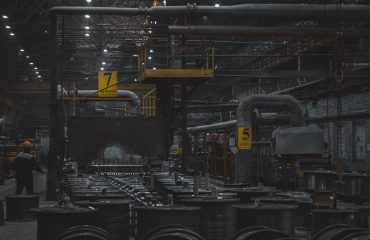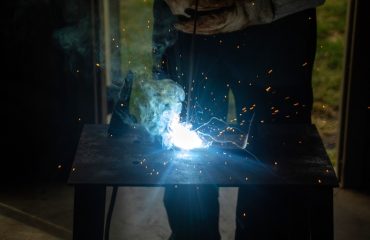Navigating the complex world of steel procurement can be daunting. With a vast array of grades, specifications, and suppliers, making informed decisions that balance quality, cost, and timely delivery requires specialized expertise. This is where technical consulting for steel buyers becomes invaluable. This comprehensive guide explores the key areas where expert advice can significantly impact your steel purchasing strategy.
1. Defining Your Steel Requirements: Specification & Material Selection
The foundation of successful steel procurement lies in accurately defining your needs. Generic requests often lead to unsuitable materials, delays, and cost overruns. Technical consultants work closely with you to understand your application’s specific demands, including:
- Intended use: What will the steel be used for? This dictates the necessary mechanical properties (strength, ductility, toughness), corrosion resistance, and weldability.
- Environmental conditions: Will the steel be exposed to harsh weather, chemicals, or high temperatures? This influences the choice of grade and surface treatment.
- Manufacturing processes: How will the steel be processed (e.g., forging, machining, welding)? Certain grades are better suited to specific processes.
- Budget constraints: While quality is paramount, cost-effectiveness is crucial. Consultants help find the optimal balance between performance and price.
- Regulatory compliance: Ensuring the steel meets all relevant industry standards and regulations is essential for safety and legal compliance. Consultants can navigate complex codes and standards.
2. Steel Grade Selection and Quality Assurance
Selecting the appropriate steel grade is critical. A seemingly small difference in grade can significantly impact performance and longevity. Technical consultants leverage their metallurgical expertise to:
- Analyze material specifications: They decipher complex steel designations (e.g., ASTM, EN, JIS) to ensure the selected grade meets the required properties.
- Compare different grades: They evaluate various steel grades based on their properties, availability, and cost, recommending the most suitable option for your application.
- Implement quality control measures: They help establish robust quality control procedures, including material testing and inspection protocols, to guarantee the received steel conforms to specifications.
- Manage supplier relationships: They assist in selecting reliable suppliers who can consistently deliver high-quality steel that meets your requirements.
- Investigate defects: In the event of defective materials, consultants help identify the root cause, negotiate with suppliers, and implement corrective actions.
3. Optimizing Steel Procurement Costs
Steel costs can significantly impact project budgets. Technical consultants employ strategies to optimize procurement costs without compromising quality:
- Negotiating with suppliers: They leverage their expertise and market knowledge to negotiate favorable pricing and payment terms with suppliers.
- Exploring alternative materials: In some cases, substituting a less expensive but equally suitable steel grade can substantially reduce costs.
- Optimizing order quantities: They advise on the optimal order quantities to balance inventory costs and potential price fluctuations.
- Supply chain management: They help streamline the procurement process, reducing lead times and minimizing logistical costs.
- Waste reduction strategies: They identify opportunities to reduce steel waste during fabrication and processing, leading to significant cost savings.
4. Steel Testing and Inspection Procedures
Ensuring the quality of received steel is paramount. Technical consultants guide you through the necessary testing and inspection procedures:
- Defining testing requirements: They specify the appropriate tests (e.g., tensile testing, impact testing, chemical analysis) to verify that the steel meets the required specifications.
- Selecting accredited laboratories: They help you choose reputable and accredited laboratories to perform the necessary testing.
- Interpreting test results: They analyze the test results and ensure they are within acceptable limits.
- Non-destructive testing (NDT): They advise on the use of NDT methods (e.g., ultrasonic testing, radiographic testing) to detect internal flaws without damaging the material.
- Documentation and traceability: They help maintain comprehensive documentation of all testing and inspection procedures, ensuring full traceability of the steel throughout the supply chain.
5. Staying Ahead of Industry Trends and Technological Advancements
The steel industry is constantly evolving. New grades, manufacturing processes, and technologies are emerging regularly. Technical consultants help you stay abreast of these advancements:
- Market research and analysis: They monitor industry trends, price fluctuations, and technological developments to ensure your procurement strategies remain current.
- New material evaluation: They assess new steel grades and technologies to identify potential opportunities for cost reduction and performance improvement.
- Sustainable procurement practices: They help you integrate sustainable practices into your steel procurement strategy, considering factors like carbon footprint and responsible sourcing.
- Industry best practices: They share best practices and lessons learned from other companies in the industry.
- Continuous improvement: They work with you to continuously improve your steel procurement processes, maximizing efficiency and minimizing risk.
By engaging technical consultants, steel buyers can significantly enhance their procurement strategies, ensuring they receive the right material, at the right price, delivered on time. This translates to improved product quality, reduced costs, and a more efficient and reliable supply chain.
SEO Tags:
Steel Buying, Technical Consulting Steel, Steel Procurement Services, Steel Grade Selection, Metallurgy Consulting




